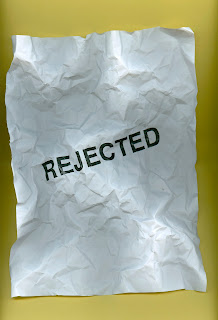Have you read Ulysses? Is it worth getting through?
Now I know Ulysses is a good book. I can find essays and quotes from tonnes of professors telling me so. But I don't understand it. I know that it is written to parallel the characters and events of Homer's poem Odyssey (which I'm mostly unfamiliar with) and that it is "revolutionary in its modernistic experimentalism". But I still don't understand. It's not the storyline exactly, it's the strange, stream-of-consciousness language itself. Let me give you an example of a paragraph from chapter two. Leopold has popped into a chemist on his way to a funeral (as far as I could tell anyway):
"Bring out the darkness of her eyes. Looking at me, the sheet up to her eyes, Spanish, smelling herself, when I was fixing the links in my cuffs. Those homely recipes are often the best: strawberries for the teeth: nettles and rainwater: oatmeal they say steeped in buttemilk. Skinfood. One of the old queen's sons, duke of Albany was it? had only one skin. Leopold yes. Three we have. Warts, bunions and pimples to make it worse. But you want a perfume too. What perfume does you? Peau d'Espagne. That orange flower. Pure curd soap. Water is so fresh. Nice smell these soaps have. Time to get a bath round the corner. Hammam. Turkish. Massage. Dirt gets rolled up in your navel. Nicer if a nice girl did it. Also I think I. Yes I. Do it in the bath. Curious longing I. Water to water. Combine business with pleasure. Pity no time for massage. Feel fresh then all day. Funeral be rather glum."
It's made me feel very uncultured and ignorant. I knew it was a very difficult book, but I'm a smart person, right? I never imagined I actually couldn't finish it. Funnily enough, I don't hate it - there's some beautiful language and ideas in there - I just don't get it at all. I don't get why it was so amazing that someone wrote a book that is so obscure I feel like a degree in classics is necessary. I'd hate to say I gave up on one of the greatest works of literature, but it's that or another month of wading. My only potential salvation is to use Wikipedia, which gives a breakdown of what's happening in each section. I just feel like I should be clever enough to read a novel without the aid of Wikipedia!
James Joyce himself is a really interesting man (there are autobiographical details in Ulysses) and he said a lot of really interesting stuff. He married a chamber maid called Nora Barnacle and his dying words are supposed to have been, "Does nobody understand?", for example. But there isn't space to talk about him now, so tell me...
Do you ever abandon a book part-way through? Have you ever read a classic that you can't see what the fuss is about?




